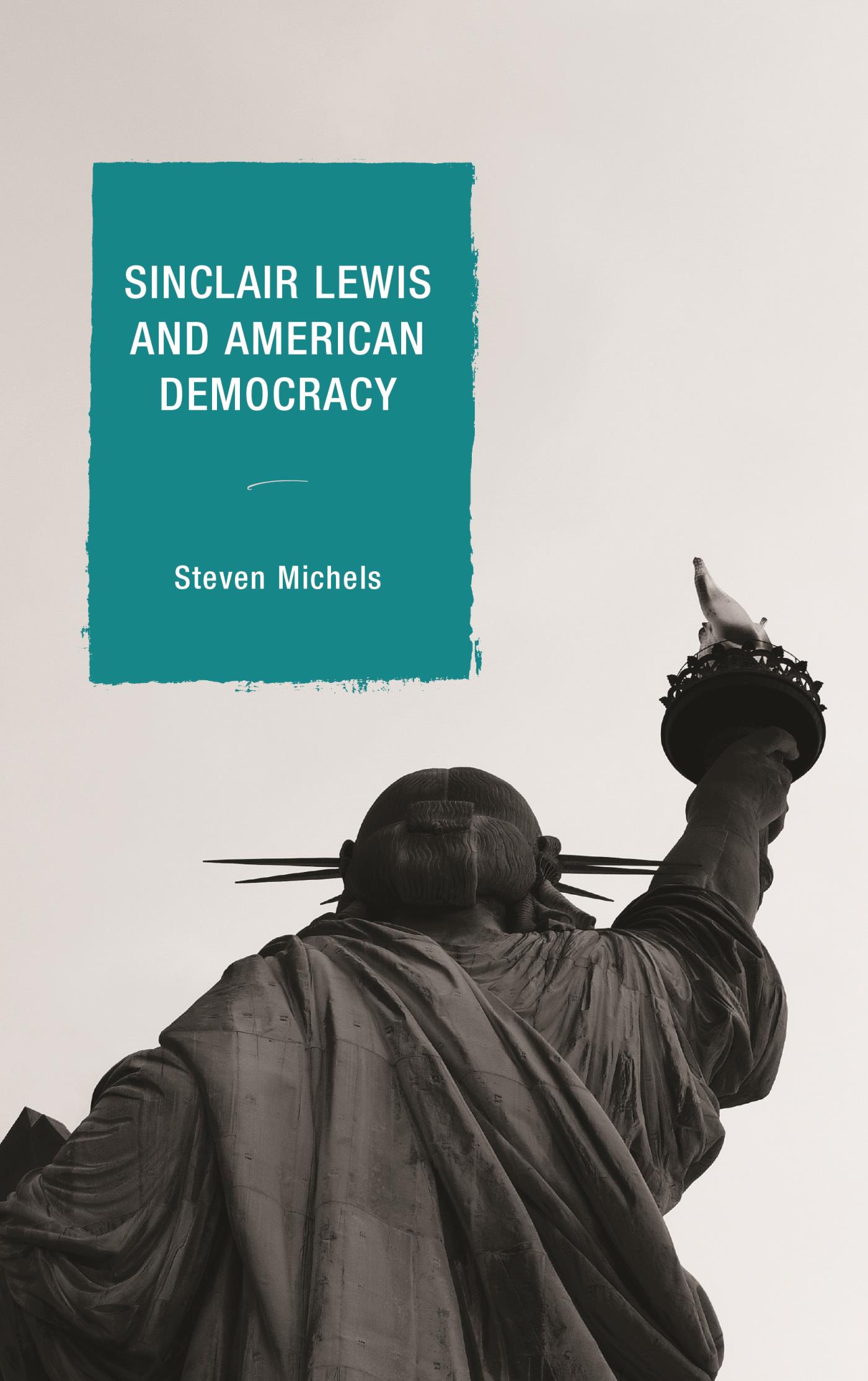Sinclair Lewis and
American Democracy
Politics, Literature, & Film
Series Editor: Lee Trepanier, Saginaw Valley State University
The Politics, Literature, & Film series is an interdisciplinary examination of the intersection of politics with literature and/or film. The series is receptive to works that use a variety of methodological approaches, focus on any period from antiquity to the present, and situate their analysis in national, comparative, or global contexts. Politics, Literature, & Film seeks to be truly interdisciplinary by including authors from all the social sciences and humanities, such as political science, sociology, psychology, literature, philosophy, history, religious studies, and law. The series is open to both American and non-American literature and film. By putting forth bold and innovative ideas that appeal to a broad range of interests, the series aims to enrich our conversations about literature, film, and their relationship to politics.
Advisory Board
Richard Avaramenko, University of Wisconsin-Madison
Timothy Burns, Baylor University
Paul A. Cantor, University of Virginia
Joshua Foa Dienstag, University of California at Los Angeles
Lilly Goren, Carroll University
Catherine Heldt Zuckert, University of Notre Dame
Titles in the Series
Sinclair Lewis and American Democracy, by Steven Michels
Liberty, Individuality, and Democracy in Jorge Luis Borges, by Alejandra M. Salinas
The Politics of Perfection: Technology and Creation in Literature and Film, by Kimberly Hurd Hale
The Limits of Politics: Making the Case for Literature in Political Analysis, by Kyle Scott
Sinclair Lewis and
American Democracy
Steven Michels
LEXINGTON BOOKS
Lanham Boulder New York London
Published by Lexington Books
An imprint of The Rowman & Littlefield Publishing Group, Inc.
4501 Forbes Boulevard, Suite 200, Lanham, Maryland 20706
www.rowman.com
Unit A, Whitacre Mews, 26-34 Stannary Street, London SE11 4AB
Copyright 2017 by Lexington Books
Excerpts from Arrowsmith by Sinclair Lewis. Copyright 1925 by Houghton Mifflin Harcourt Publishing Company, renewed 1953 by Michael Lewis. Reprinted by permission of Houghton Mifflin Harcourt Publishing Company. All rights reserved.
All rights reserved. No part of this book may be reproduced in any form or by any electronic or mechanical means, including information storage and retrieval systems, without written permission from the publisher, except by a reviewer who may quote passages in a review.
British Library Cataloguing in Publication Information Available
Library of Congress Cataloging-in-Publication Data Available
ISBN 978-1-4985-1914-4 (cloth: alk. paper)
ISBN 978-1-4985-1915-1 (electronic)
 TM The paper used in this publication meets the minimum requirements of American National Standard for Information Sciences Permanence of Paper for Printed Library Materials, ANSI/NISO Z39.48-1992.
TM The paper used in this publication meets the minimum requirements of American National Standard for Information Sciences Permanence of Paper for Printed Library Materials, ANSI/NISO Z39.48-1992.
Printed in the United States of America
Acknowledgments
I dont remember when I first read Sinclair Lewis. He was not assigned in high school or college, and I cant remember anyone ever recommending him. Main Street has been on my shelf as one of my favorite books for a long time, but I must have come to him on my own.
As a native Midwesterner with a sometimes-rebellious streak, I could not help but identify with the plight of Carol Kennicott. It was only many years later, when I was teaching Main Street in a freshman seminar, that I came to see what a complex and flawed character she is. I admired her less for it, but I liked Lewis more.
Lewis remains a secondary figure in American literature but deserves to be read more widely than he is. Indeed, nearly everyone who asked what I was working on during the course of writing this book confused Sinclair Lewis with Upton Sinclair, the author of The Jungle. It was an error that frustrated Lewis to no end. (He even jokes about it in Cass Timberlane.) This book is a study of his politics and social views, but its also an earnest plea for others to read and enjoy him as much as his talent merits. Its not an exaggeration to say that his voice is needed somewhat desperately.
Many thanks to Lee Trepanier and the fine editors, reviewers, and staff at Lexington. Special gratitude must also be extended to Richard Lingeman for his outstanding biography of Lewis, of which I make heavy use. Its essential reading for anyone who wants to understand the man behind the books.
A heartfelt thanks as always goes to my family, friends, colleagues, and students for their immeasurable understanding and support, in all its forms. I am fortunate and grateful beyond measure.
Introduction
How America Reads Lewis
Sinclair Lewis had an ambivalent relationship with America. His Midwestern upbringing perfectly situated him to understand the American experiment, but he found it wanting in many ways. His take on the United States was captured during a 1930 radio interview he gave while in Berlin: Intellectually I know that America is no better than any other country; emotionally I know she is better than every other country.
Lewis, we might note, is one of three American authors, along with Hemingway and Faulkner, to appear on the cover of Time twice. These days, there is considerable disagreement about what to make of Lewis and even whether he is worth reading at all. Part of the reason for his low repute lies with Lewis himself, who alternately cared for the quality and the quantity of what he committed to paper. Too much of what we wrote, especially his articles and short stories but also some of his novels, was written for pay or to meet what he perceived to be the unquenchable public demand for his writing. He penned several classic novels, but unfortunately they comprise a fraction of his total output.
Theres also Mark Schorers 1961 biography, which did little to advance Lewiss reputation as a writeror as a person. Its generally recognized as deficient, primarily because its so thoroughly tainted by its authors distaste for his subject. Schorer paints the picture of a once-popular but failed and even tragic writer who also happens to be a drunken jerk. Schorer concludes that Lewis is one of the worst writers. The more recent biography, from Richard Lingeman, offers a fairer and more considered view of Lewis, the man and the author.
Lewis, as Schorers hit-piece shows, is the recipient of more than his share of unfair assessments. Lewiss shotgun style-earned him many strong reactions, which included politicians, businessmen of nearly every stripe, anyone who ever lived in a small town, the faithful, artists who ever cared about money, and countless others. Its safe to say that Lewis went after almost everyoneincluding himself.
Sheldon N. Grebstein blames Lewiss lack of interest in style as a reason for why Lewis is not more widely read. Lewis was part satirist, part storyteller, Grebstein claims, but his themes were rather superficial and only occasionally did he plumb the depths of human nature or moral issues. He didnt care enough about literary style, and it cost him. But his lack of literary flair is also a great virtue. The dramatic tension in his novels is presented not as some clever contrivance, but mostly between or among characters and the choices they make. Sometimes it appears in the way of old versus new or between generations, but more often its through Lewiss examination of one person and how he or she achieves and maintains his or her status and the benefits and costs of doing so.

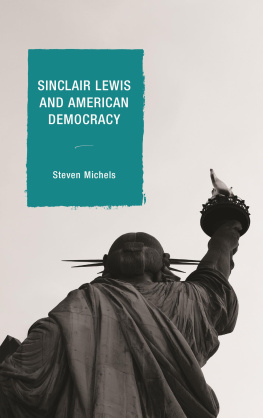

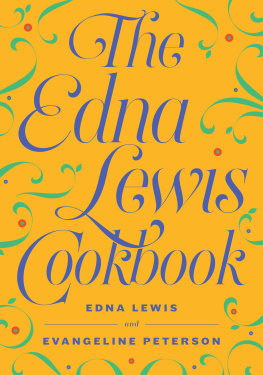

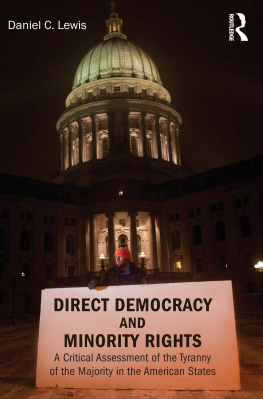
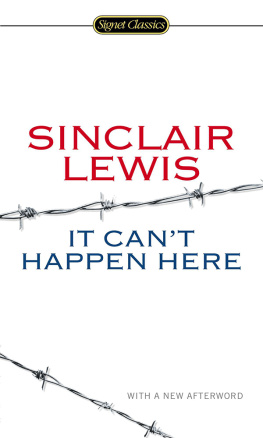
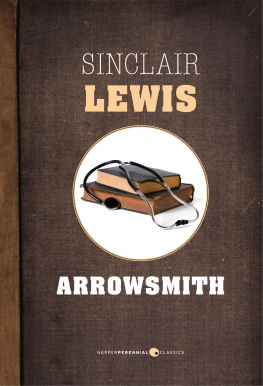
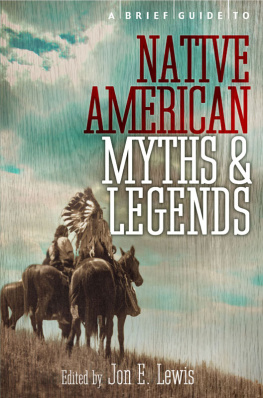
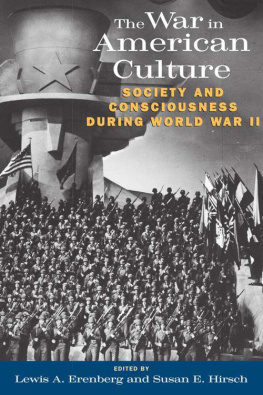
 TM The paper used in this publication meets the minimum requirements of American National Standard for Information Sciences Permanence of Paper for Printed Library Materials, ANSI/NISO Z39.48-1992.
TM The paper used in this publication meets the minimum requirements of American National Standard for Information Sciences Permanence of Paper for Printed Library Materials, ANSI/NISO Z39.48-1992.